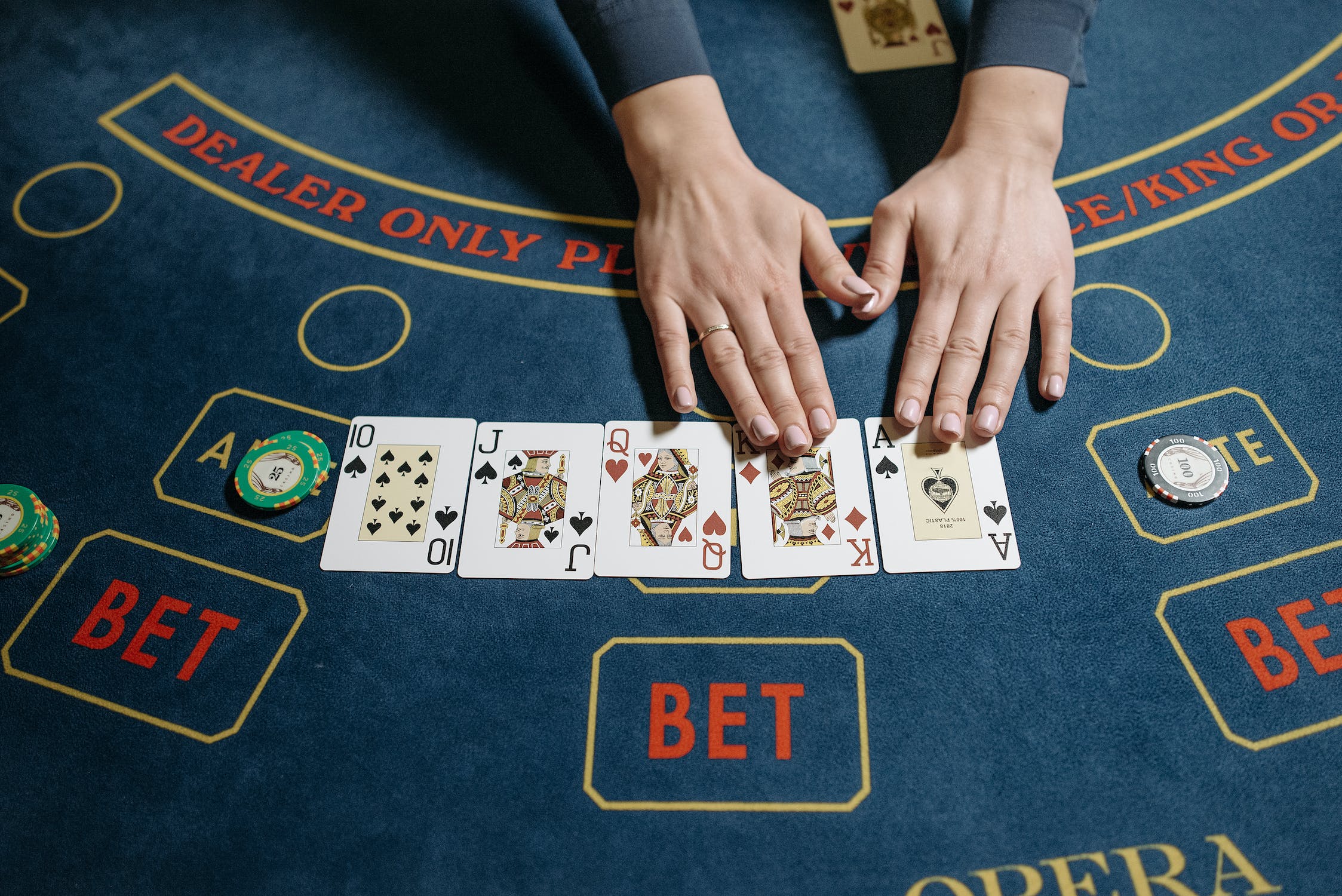This article explores the intersection of poker and philosophy. It delves into the philosophical concepts that underlie the game of poker and how they can be applied to our everyday lives. From decision-making to ethics, poker offers a unique lens through which to examine these ideas. Whether you’re a seasoned poker player or simply interested in exploring the philosophical implications of the game, this article will provide valuable insights and food for thought.
The Role of Probability in Poker and Philosophy
Poker and philosophy may seem like two completely different worlds, but they actually have a lot in common. One of the most important intersections between the two is the role of probability.
In poker, probability is everything. Every decision a player makes is based on the likelihood of certain outcomes. For example, if a player has a pair of aces, they are more likely to win the hand than if they have a pair of twos. Understanding the probability of different hands and outcomes is essential to being a successful poker player.
Similarly, probability plays a crucial role in philosophy. Many philosophical arguments are based on probability, such as the famous “Pascal’s Wager” argument for the existence of God. This argument suggests that it is more rational to believe in God, even if there is no concrete evidence, because the potential reward (eternal life in heaven) outweighs the potential cost (nothing lost if God doesn’t exist).
Probability also plays a role in ethical decision-making. Utilitarianism, for example, is a philosophical theory that suggests that the best course of action is the one that maximizes overall happiness or pleasure. This theory relies on the probability that certain actions will lead to certain outcomes, and the belief that maximizing happiness is the most ethical choice.
In both poker and philosophy, understanding probability is not just about making better decisions, but also about accepting uncertainty. In poker, even the best players can lose a hand due to bad luck. In philosophy, there are no guarantees that any argument or theory is completely true. Accepting uncertainty and making decisions based on probability is a key part of both fields.
Another important intersection between poker and philosophy is the concept of “expected value.” In poker, expected value is the average amount a player can expect to win or lose on a particular bet. For example, if a player has a 50% chance of winning $100 and a 50% chance of losing $50, the expected value of the bet is $25 ($50 profit half the time, $50 loss half the time).
In philosophy, expected value is often used to make ethical decisions. For example, if a doctor has to choose between two treatments for a patient, they may consider the expected value of each treatment. If one treatment has a higher probability of success but also a higher risk of side effects, the doctor may choose the treatment with the higher expected value.
Understanding expected value is important in both poker and philosophy because it allows players and decision-makers to make rational choices based on probability. It also helps to minimize the impact of luck or chance on outcomes.
The role of probability in both poker and philosophy is a fascinating intersection between two seemingly unrelated fields. Understanding probability and expected value is essential to making rational decisions in both fields, and accepting uncertainty is a key part of both poker and philosophy. Whether you’re a poker player or a philosopher, exploring the intersection of these two fields can lead to a deeper understanding of both.
The Ethics of Bluffing in Poker and Philosophy

Bluffing is a fundamental part of poker. It is the act of making your opponents believe that you have a better hand than you actually do. It is a strategy that can be used to win pots, even when you don’t have the best cards. But is it ethical to bluff in poker? And what does philosophy have to say about it?
In philosophy, there are different schools of thought when it comes to ethics. Some philosophers believe that lying is always wrong, while others believe that lying can be justified in certain circumstances. The same can be said for bluffing in poker.
On one hand, some argue that bluffing is inherently dishonest and therefore unethical. They believe that it is wrong to deceive your opponents and that it goes against the principles of fairness and honesty. In this view, bluffing is seen as a form of cheating.
On the other hand, others argue that bluffing is a legitimate strategy in poker and that it is not inherently unethical. They believe that bluffing is simply a part of the game and that it is up to each player to decide whether or not to use it. In this view, bluffing is seen as a form of gamesmanship.
So, which view is correct? The truth is that there is no easy answer. The ethics of bluffing in poker are complex and depend on a variety of factors, including the context of the game, the players involved, and the stakes at play.
For example, in a friendly game of poker among friends, bluffing may be seen as harmless fun. But in a high-stakes tournament, where players are competing for large sums of money, the ethics of bluffing become much more complicated.
Ultimately, the decision to bluff in poker is a personal one. Each player must decide for themselves whether or not they are comfortable with the idea of deceiving their opponents in order to win. Some players may choose to avoid bluffing altogether, while others may see it as an essential part of their strategy.
In the end, the ethics of bluffing in poker and philosophy are intertwined. Both fields grapple with questions of honesty, fairness, and deception. And while there may not be a clear answer to the question of whether or not bluffing is ethical, the debate itself is a fascinating one that sheds light on the complex nature of both poker and philosophy.
The Psychology of Decision Making in Poker and Philosophy
One of the key areas where poker and philosophy intersect is in the psychology of decision making. In both fields, decision making is a complex process that involves weighing multiple factors and assessing risk. In poker, players must constantly make decisions about whether to bet, call, raise, or fold based on the strength of their hand, the actions of their opponents, and their own intuition. Similarly, in philosophy, individuals must make decisions about what they believe, what actions they will take, and what values they will prioritize based on their own reasoning and intuition.
One of the most important skills in both poker and philosophy is the ability to read and understand human behavior. In poker, players must be able to read their opponents’ body language, facial expressions, and betting patterns in order to determine whether they are bluffing or have a strong hand. Similarly, in philosophy, individuals must be able to read and understand the beliefs and motivations of others in order to engage in productive dialogue and debate.
Another area where poker and philosophy intersect is in the concept of risk assessment. In both fields, individuals must be able to assess the potential risks and rewards of a particular decision in order to make an informed choice. In poker, players must weigh the potential rewards of winning a hand against the risks of losing their chips. Similarly, in philosophy, individuals must weigh the potential benefits and drawbacks of a particular course of action or belief system in order to make an informed decision.
Perhaps the most interesting intersection between poker and philosophy is in the concept of game theory. Game theory is a branch of mathematics that studies decision making in strategic situations, such as games. In poker, game theory is used to analyze the optimal strategies for different situations, such as when to bluff or when to call a bet. Similarly, in philosophy, game theory is used to analyze the optimal strategies for different ethical dilemmas, such as the prisoner’s dilemma.
Overall, the intersection of poker and philosophy is a fascinating area of study that offers insights into the psychology of decision-making, risk assessment, and human behavior. Whether you are a professional poker player or a philosophy enthusiast, exploring the connections between these two fields can help you develop a deeper understanding of the complex processes that underlie our everyday choices and actions. So why not take a closer look at the intersection of poker and philosophy and see what insights you can gain?
The Concept of Luck in Poker and Philosophy
Luck is a concept that has been debated by philosophers for centuries. Some argue that luck is a matter of chance, while others believe that it is a result of our actions. In poker, luck plays a significant role in the outcome of the game. A player can have the best hand, but if luck is not on their side, they can still lose the game.
Philosophers have argued that luck is a matter of chance, and that it is not something that can be controlled. In poker, luck is often seen as a factor that is beyond a player’s control. However, some players believe that they can control their luck by using certain strategies and techniques.
One of the most common strategies used by poker players is bluffing. Bluffing is a technique that involves pretending to have a better hand than you actually do. This can be a risky strategy, as it relies on luck to some extent. However, some players believe that they can control their luck by using this technique effectively.
Another strategy used by poker players is reading their opponents. This involves observing their opponents’ behavior and trying to determine what kind of hand they have. This strategy can be effective, but it also relies on luck to some extent. If a player misreads their opponent, they can end up losing the game.
In philosophy, luck is often seen as a matter of chance, but it is also seen as a result of our actions. This is known as the “luck egalitarian” view. According to this view, luck should be distributed fairly, and those who are less fortunate should be given more opportunities to succeed.
In poker, luck is often seen as a factor that is beyond a player’s control. However, some players believe that they can control their luck by using certain strategies and techniques. This raises questions about the concept of luck and whether it is something that can be controlled.
Overall, the intersection of poker and philosophy is an interesting one, as it raises questions about the concept of luck. While luck is often seen as a factor that is beyond a player’s control, some players believe that they can control their luck by using certain strategies and techniques. This raises questions about the nature of luck and whether it is something that can be controlled.
The Philosophy of Game Theory in Poker Strategy

Game theory is a branch of mathematics that deals with the study of strategic decision-making. It is a tool that is used to analyze the behavior of individuals in strategic situations, such as in poker. In poker, players are constantly making decisions based on the information they have and the actions of their opponents. Game theory can be used to analyze these decisions and to develop strategies that can help players make better decisions.
One of the key concepts in game theory is the Nash equilibrium. This is a situation in which each player is making the best decision possible given the decisions of the other players. In poker, the Nash equilibrium can be used to determine the optimal strategy for a player in a given situation. For example, if a player is facing a bet on the river, they can use the Nash equilibrium to determine whether to call or fold based on the probability of their opponent having a better hand.
Another important concept in game theory is the concept of mixed strategies. A mixed strategy is a strategy in which a player randomly chooses between two or more possible actions. In poker, mixed strategies can be used to keep opponents guessing and to prevent them from exploiting a player’s tendencies. For example, a player might choose to bluff with a certain frequency to prevent their opponents from always calling their bets.
The philosophy of game theory in poker strategy also explores the concept of rationality. In game theory, rationality is defined as making decisions that maximize expected utility. In poker, rationality can be used to determine the optimal strategy for a player in a given situation. For example, if a player is facing a bet on the river, they can use rationality to determine whether to call or fold based on the expected value of each decision.
One of the challenges of using game theory in poker strategy is that it assumes that all players are rational and that they have complete information about the game. In reality, poker is a game of incomplete information, and players often make decisions based on incomplete or misleading information. This is where the philosophy of game theory in poker strategy becomes particularly interesting. It explores the limitations of game theory and the ways in which it can be adapted to account for the complexities of real-world poker games.
The philosophy of game theory in poker strategy is an interesting topic that explores the intersection of poker and philosophy. It uses concepts from game theory to analyze the decisions that players make in poker games and to develop strategies that can help players make better decisions. It also explores the limitations of game theory and the ways in which it can be adapted to account for the complexities of real-world poker games.
In conclusion, the intersection of poker and philosophy is a fascinating area of study that offers insights into human nature, decision-making, and ethics. By examining the strategies and thought processes of successful poker players, philosophers can gain a deeper understanding of rationality, risk-taking, and the nature of luck. At the same time, poker players can benefit from philosophical insights into the ethics of competition, the importance of self-reflection, and the role of emotions in decision-making. Overall, the intersection of poker and philosophy is a rich and rewarding field that offers valuable lessons for both players and thinkers alike.
